Peculiarities of media education of adults in war conditions was the topic of the Roundtable organized by the State Committee for Television and Radio-Broadcasting of Ukraine, National Academy of Educational Sciences of Ukraine, National Union of Journalists of Ukraine (NUJU), Ivan Ziaziun Institute of Pedagogical Education and Adult Education of the National Academy of Educational Sciences of Ukraine (NAESU), Ukrainian Institute for Advanced Training of Television, Radio Broadcasting and Press Workers on January 30, 2024.
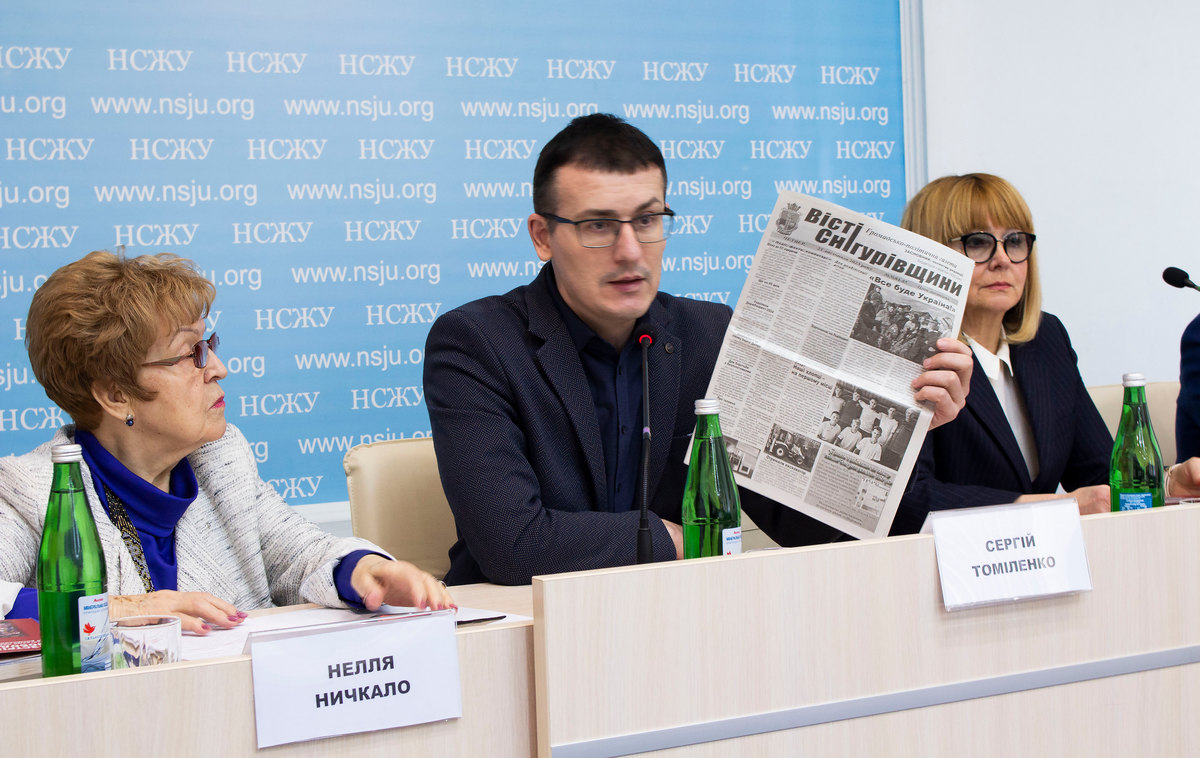
Welcoming the participants in the Roundtable, the President of the NUJU / Honored Journalist of Ukraine, Sergiy Tomilenko, noted the effective activities of journalists and educators in war conditions. Such activities were initiated by the memorandum on cooperation between the NUJU and the National Academy of Educational Sciences of Ukraine (dated December 22, 2022). He also presented the publication of documented war crimes of the Russian occupiers in Ukraine, a unique exhibition of photos by war correspondents. He paid particular attention to local media that resumed their publishing after de-occupation. They became almost the only source of information in the territories liberated from Russian troops. Behind these and many other facts is the huge work of journalists who work to spread throughout the world, and, in particular, within international organizations, of true documented information about Russian aggression against Ukraine, strengthening the resistance of Ukrainians to disinformation and fakes.
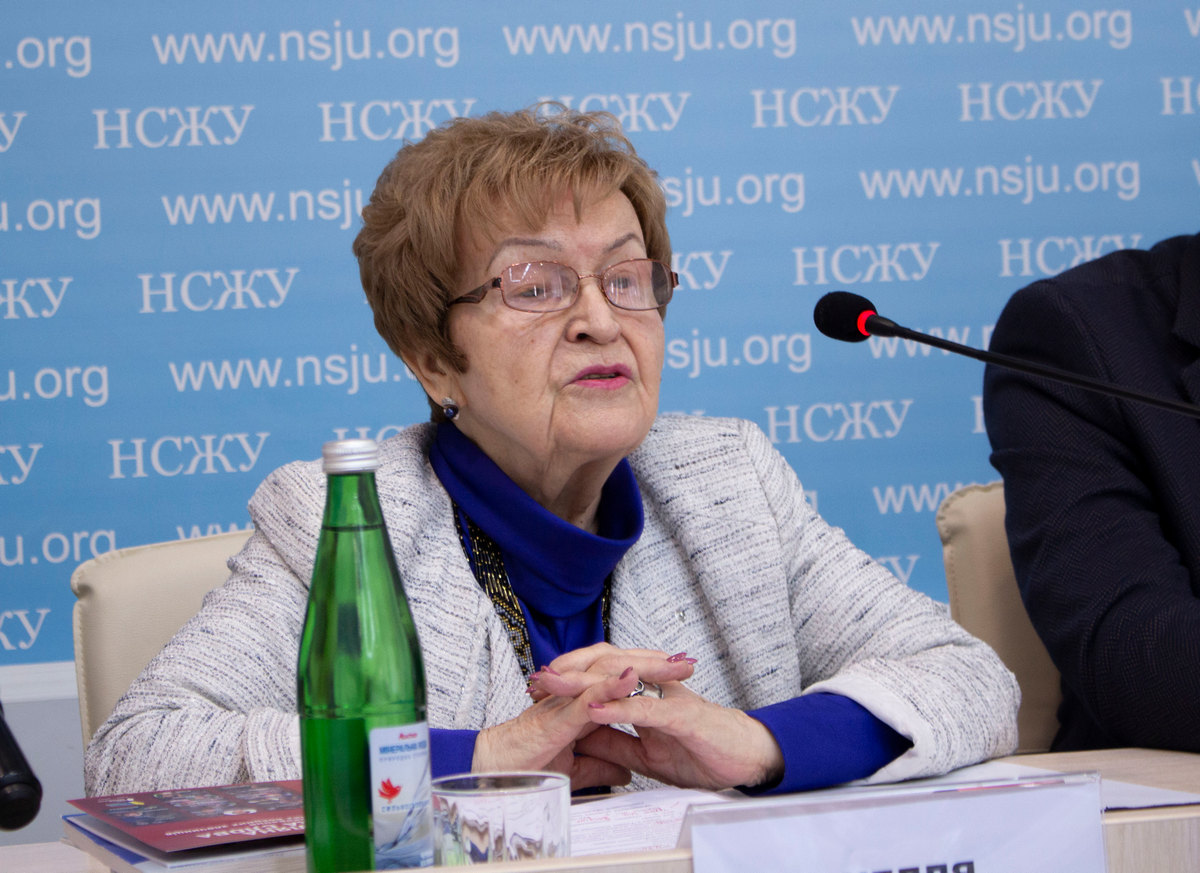
Academician-secretary of the Department of Professional Education and Adult Education of the National Academy of Pedagogical Sciences of Ukraine / doctor of pedagogical sciences / professor / active member (academician) of the NAESU / honored worker of science and technology of Ukraine, Nellia Nychkalo, outlined the main steps in the development of andragogy as a scientific subdiscipline and also gave a short documentary chronicle that testifies to the activity of the NAESU aimed at the development of adult education in our country, the preparation of the Concept and the bill of Ukraine On Adult Education, already adopted in the first reading by the Verkhovna Rada of Ukraine. Nellia Nychkalo emphasized the activities of the Ivan Ziaziun Institute of Pedagogical Education and Adult Education of the NAESU, NUJU, Ukrainian Institute for Advanced Training of Television, Radio Broadcasting and Press Workers, which develops new training courses and provides advanced training for television, radio, and press workers. She offered to prepare recommendations on the problems of adult education in war and post-war times and media hygiene. She also made suggestions for publishing Roundtable materials in domestic, foreign, and international professional media, in particular, under the auspices of UNESCO.
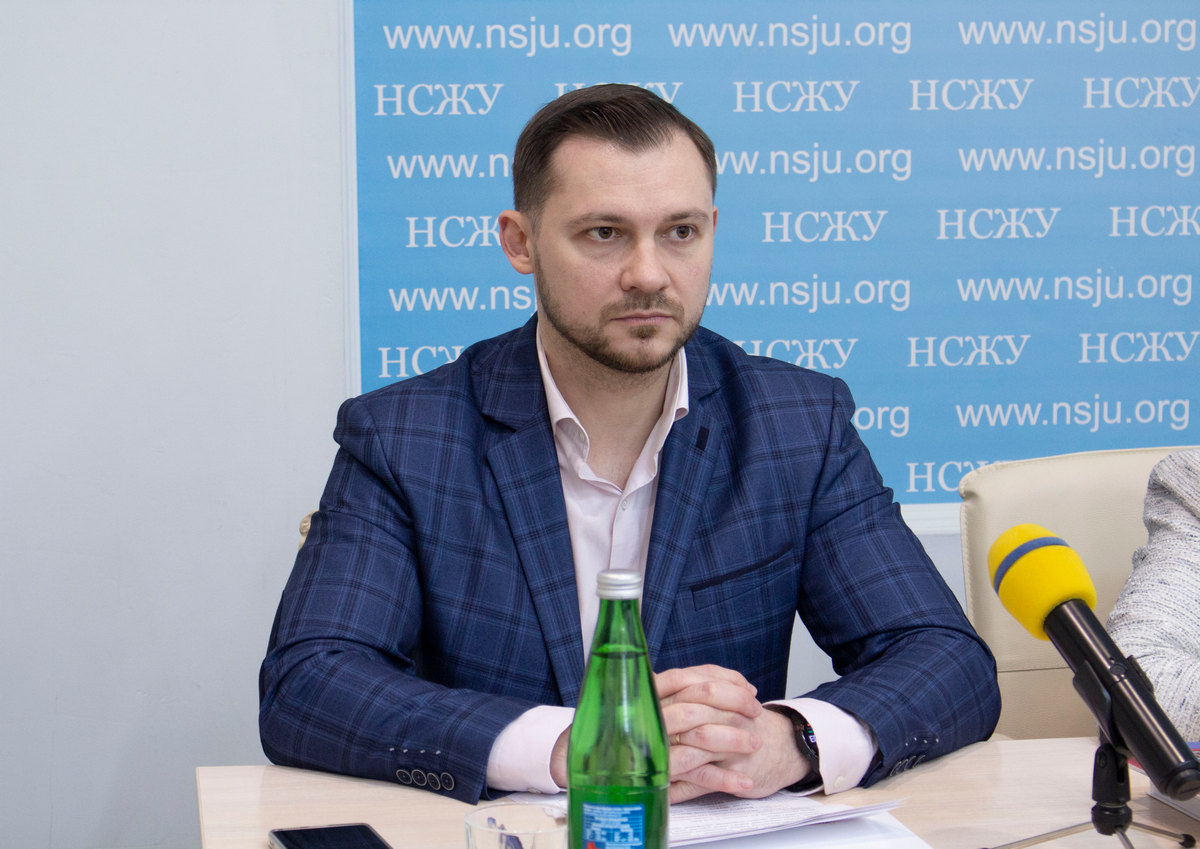
Oleksandr Obodovych, the head of the Department for Television and Radio Broadcasting, European and Euro-Atlantic Integration of the State Committee for Television and Radio-Broadcasting of Ukraine, emphasized the current development of trends in media literacy and hygiene in the context of the struggle for the security of the information front. He also greeted the participants in the Roundtable on behalf of Oleh Nalyvaiko, the head of the State Committee for Television and Radio-Broadcasting of Ukraine.
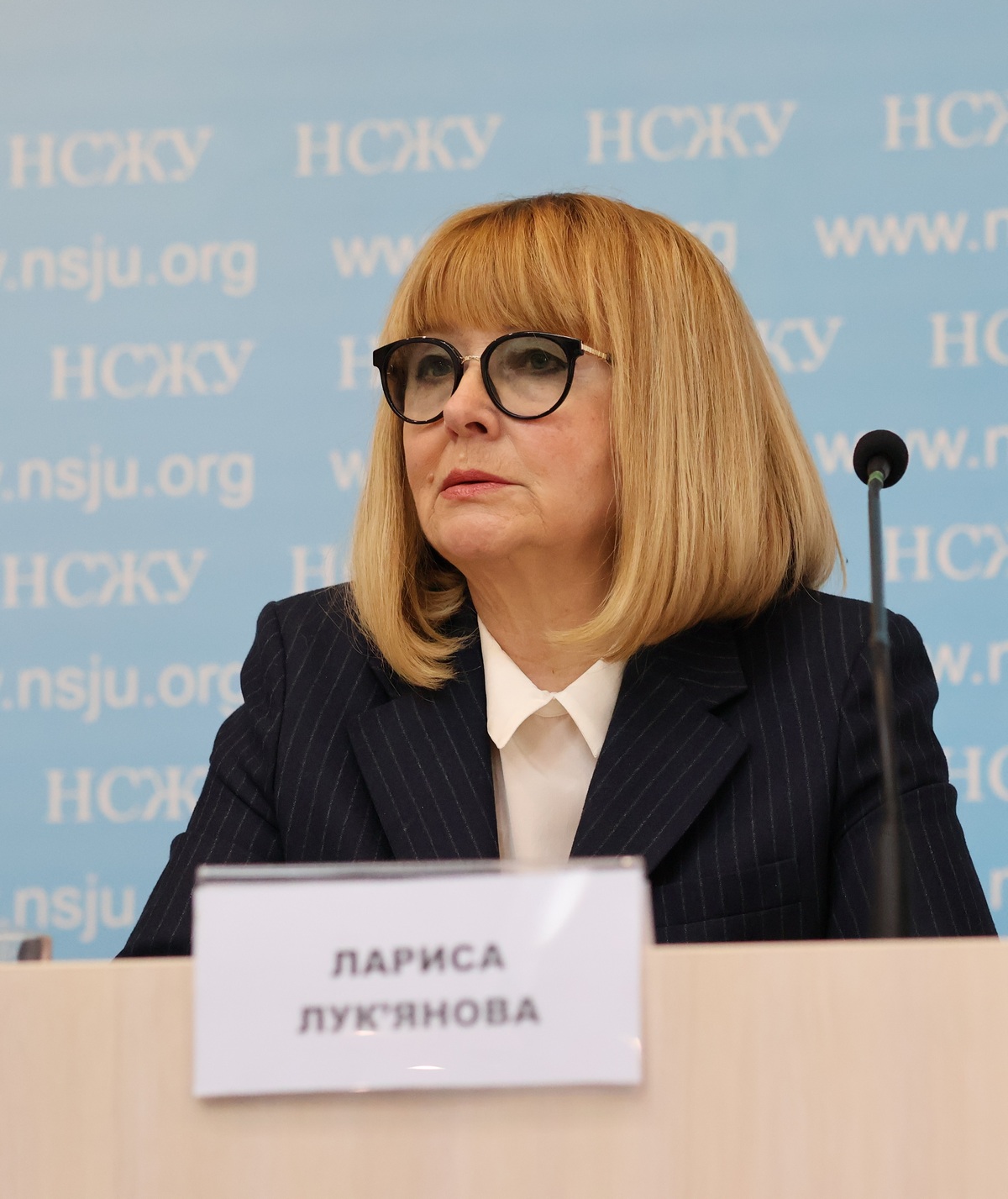
The modern system of adult education in Ukraine and its role in the formation of media literacy of adults in the conditions of war, cooperation with the Ukrainian Institute for Advanced Training of Television, Radio Broadcasting and Press Workers was discussed in the speech of the director of Ivan Ziaziun Institute of Pedagogical Education and Adult Education of the NAESU / Doctor of Pedagogical Sciences / professor / correspondent member of the NAESU / honored figure of science and technology of Ukraine, Larysa Lukiyanova. In the era of total information war, according to Larysa Lukiyanova, the ability to process information and perceive it in an undistorted form acquires extraordinary importance. Therefore, media education is becoming extremely relevant today in Ukraine and the world. Attention was also paid to the issues of financing non-formal education of adults and legislative regulation of this field, in particular, the creation of educational hubs for Ukrainians in Europe, as well as internally displaced persons.
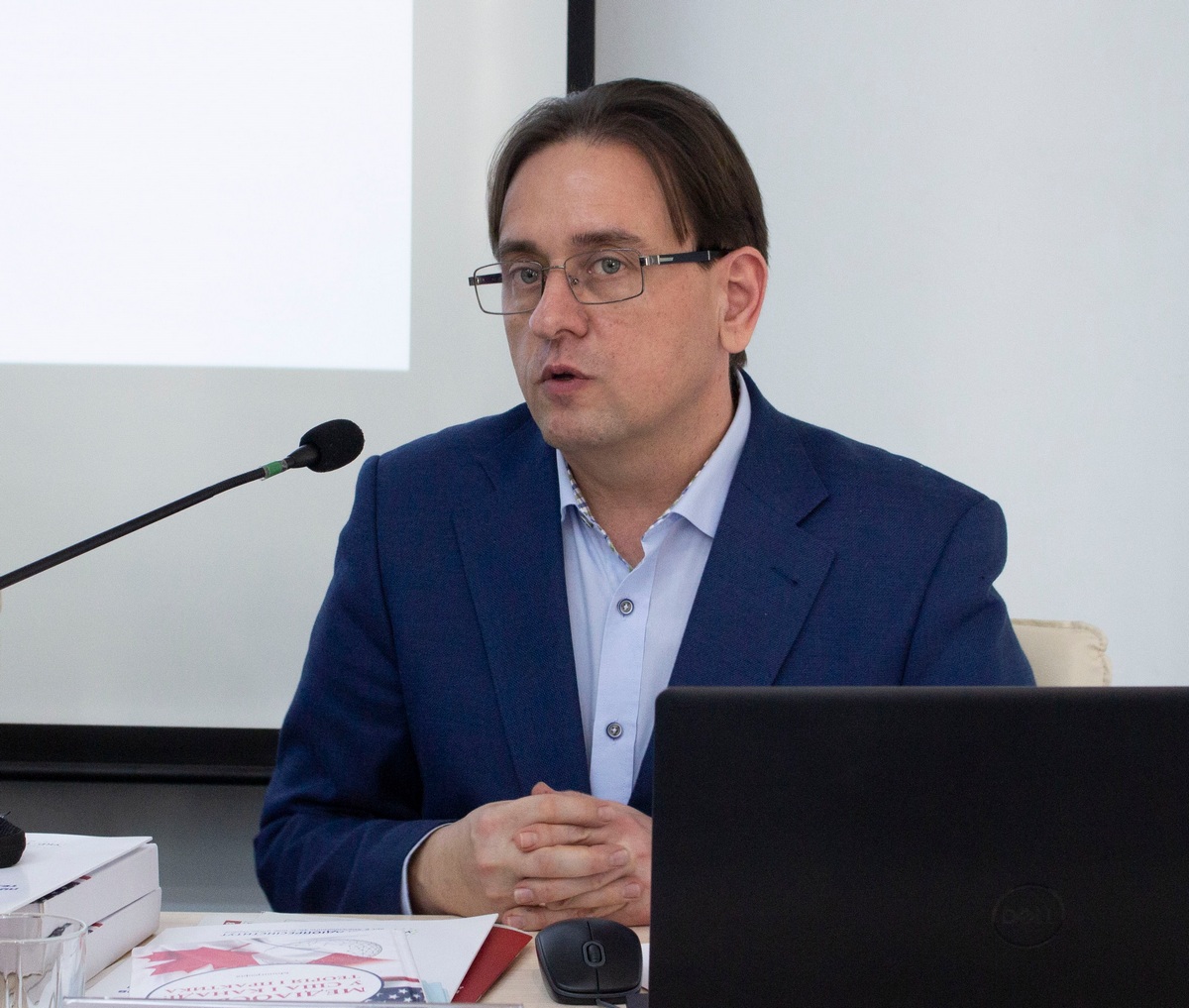
Hlib Holovchenko, the acting director of the Ukrainian Institute for Advanced Training of Television, Radio Broadcasting and Press Workers / Doctor of Pedagogical Sciences / Secretary of the Ukrainian Academy of Sciences and Honored Journalist of Ukraine, noted that more than half a century ago, the term “media education” first used at a meeting of the information sector of UNESCO and the International Council for Film, Television, and Audiovisual Communication became widespread throughout the world. A number of international documents on media education and media literacy, the world experience of adult media education, in particular, the United States and Canada, are designed to eliminate the problems of mass communication. He emphasized that the demand for quality content, especially in wartime, remains unmet, as mass media are sometimes used as a tool of hybrid warfare. Therefore, critical thinking skills become increasingly invaluable within the digital society.
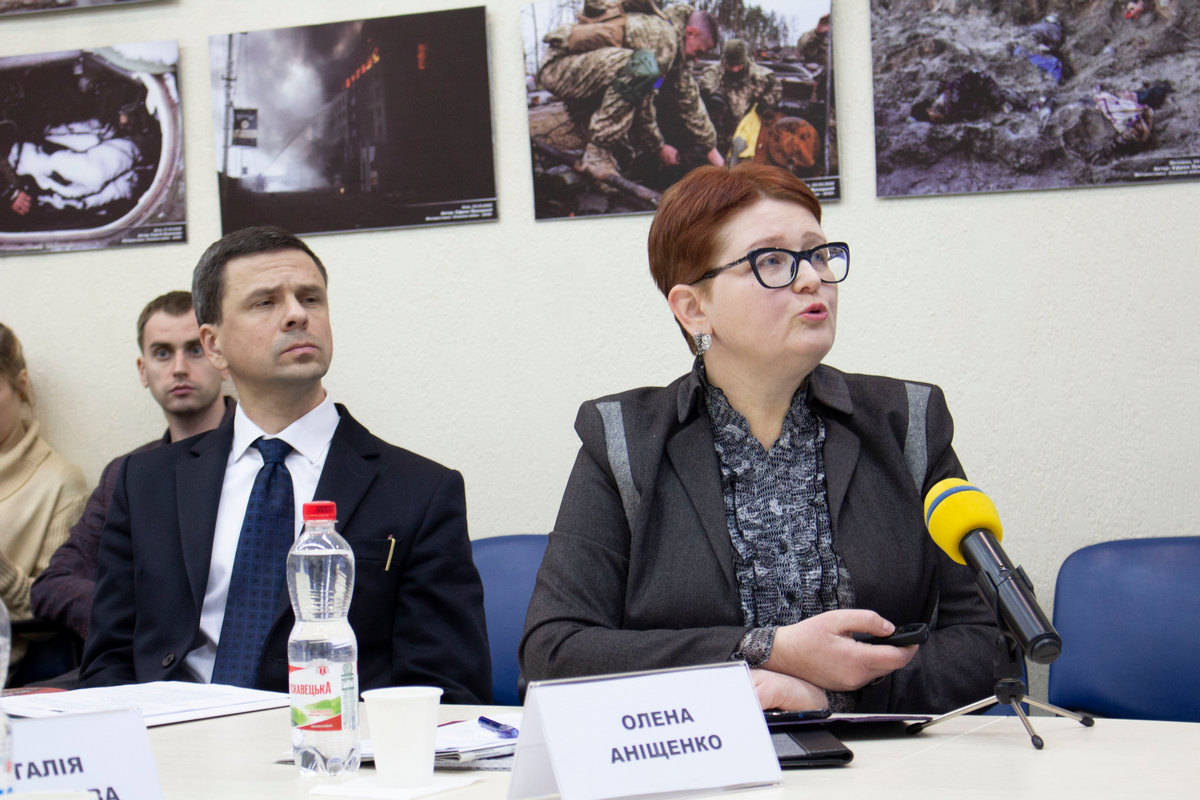
The speech of the head of the Department of Andragogy of Ivan Ziaziun Institute of Pedagogical Education and Adult Education of the NAESU / Doctor of Pedagogical Sciences and Professor, Olena Anishchenko, was dedicated to highlighting the problems of media competence of adults and the possibility of developing non-formal education in Ukraine.
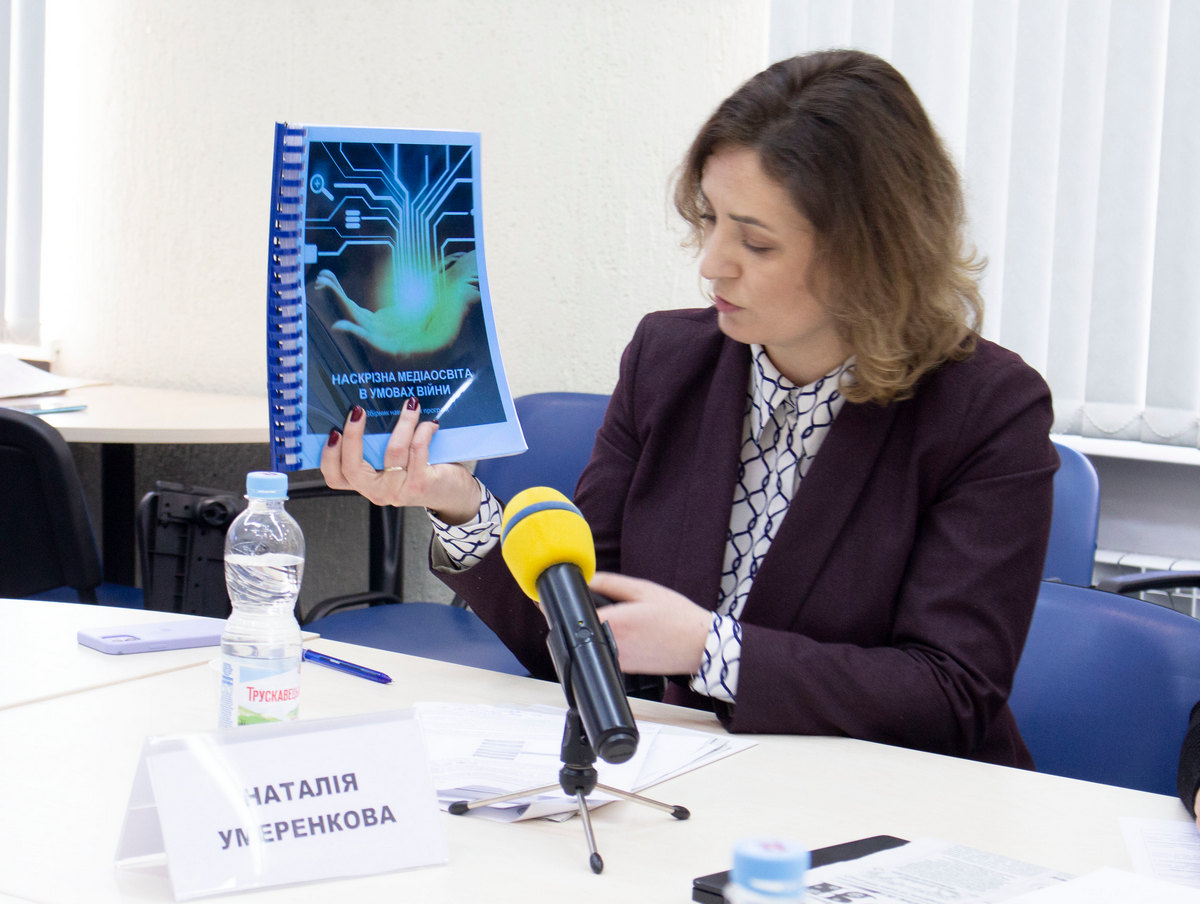
Nataliya Umerenkova, the senior researcher / employee of the Department of Mass Communication and Media Education of the Institute of Social and Political Psychology of the NAESU and candidate of psychological sciences, convinced the audience of the relevance of trauma-healing media education during the war. She presented, in particular, the work of the All-Ukrainian mental health program titled How Are You? As a practicing psychotherapist and psychologist, Nataliya Umerenkova spoke very figuratively about the perception of media products: it seems that everyone understands it, but how to get out of our “information bubble,” it turns out that there is a lot of work to do.
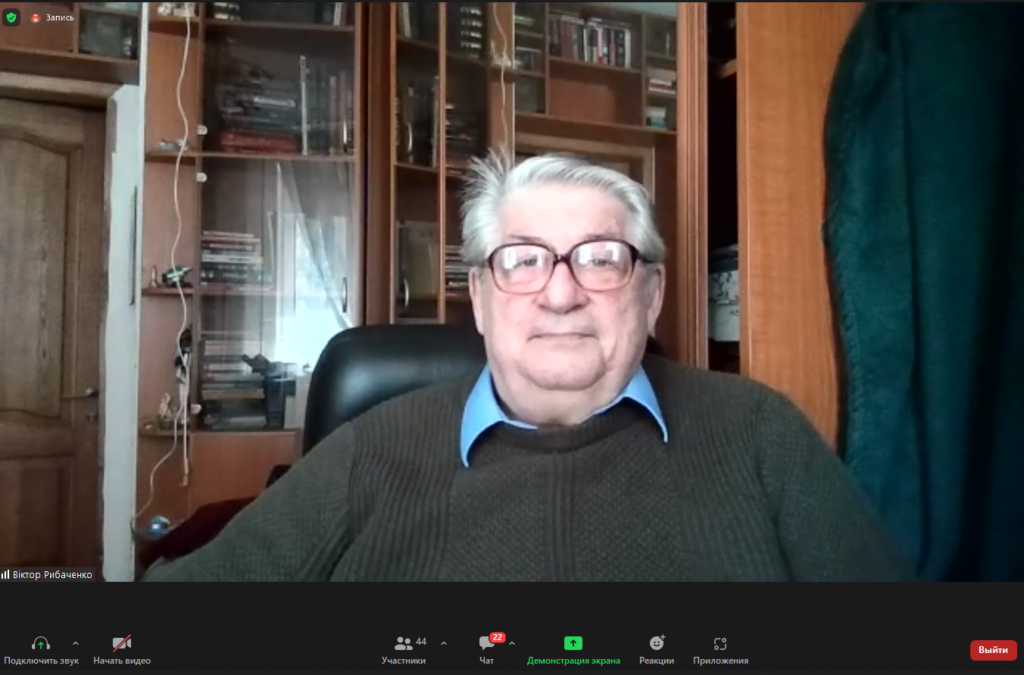
Viktor Rybachenko, the vice president of the Association of Political Psychologists of Ukraine / teacher of the Ukrainian Institute for Advanced Training of Television, Radio Broadcasting and Press Workers / professor of the Faculty of PR, Journalism and Information Policy of the Kyiv National University of Culture and Arts and Honored Worker of Culture of Ukraine, presented his own invention – a scale for the development of a person’s media literacy. In the characteristic witty figurative manner of the teacher, he offered to distinguish between media illiteracy – an illegible consumer of media products, media literacy as an unstable omnivore, media competence as a media connoisseur of context, media subjectivity as the ability to distinguish gross misinformation, a media hedonist – a carrier of high media culture, critical thinking, a creator of a media product. And as a branch – media asceticism and media snobbery. Viktor Rybachenko offered to diagnose his level and opportunities to move to a higher level.
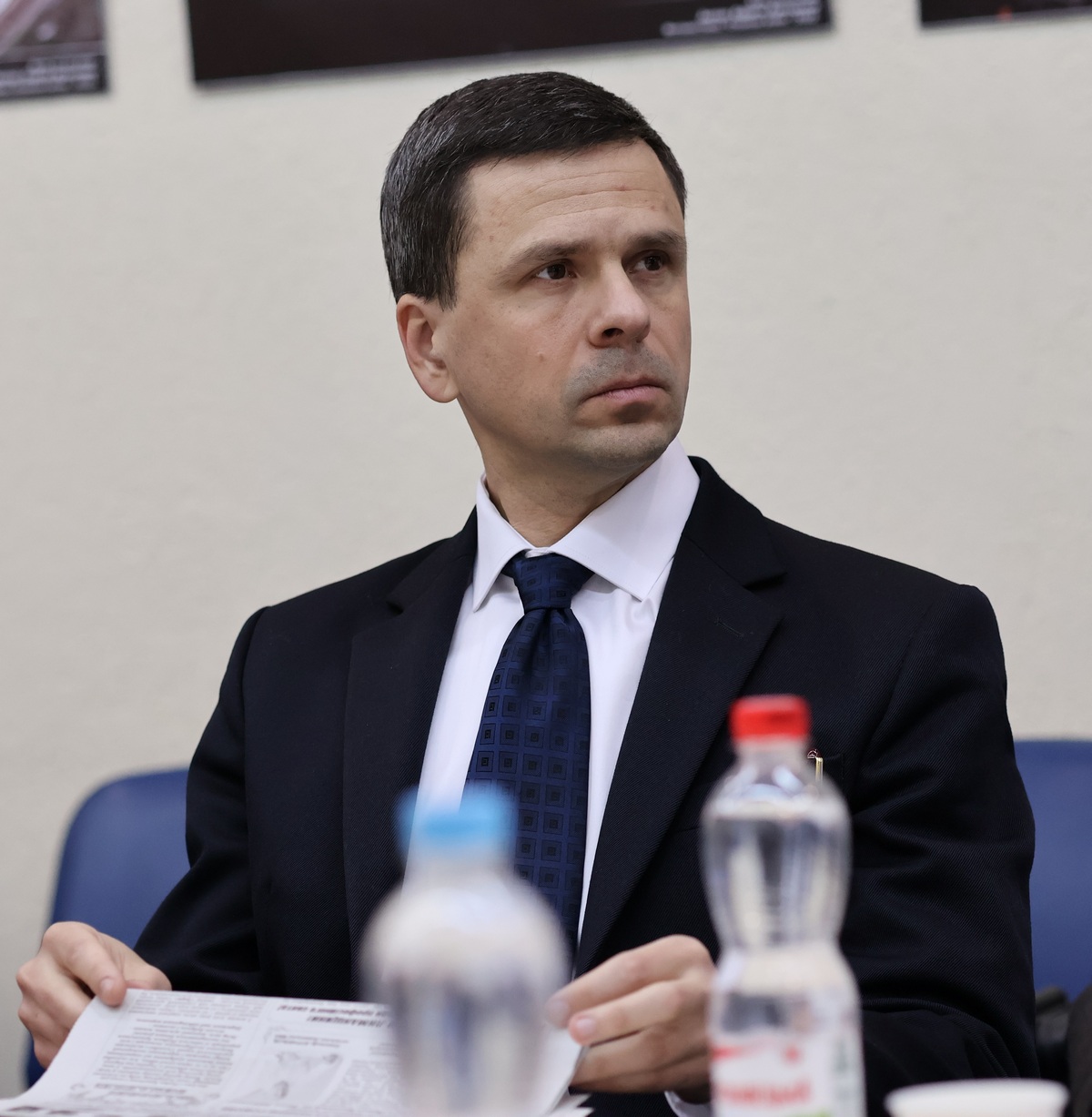
Associate Professor of the Department of Logic of Taras Shevchenko National University of Kyiv / senior lecturer at the Ukrainian Institute for Advanced Training of Television, Radio Broadcasting and Press Workers and Candidate of Philosophical Sciences, Vitalii Krykun, in a speech about myths and reality in media education for adults, called for more often getting out of the established communication comfort zone, so to speak, so that “echo cameras” and “epistemic bubbles” of our existence do not prevent us from developing, thinking critically, and perceiving new things.
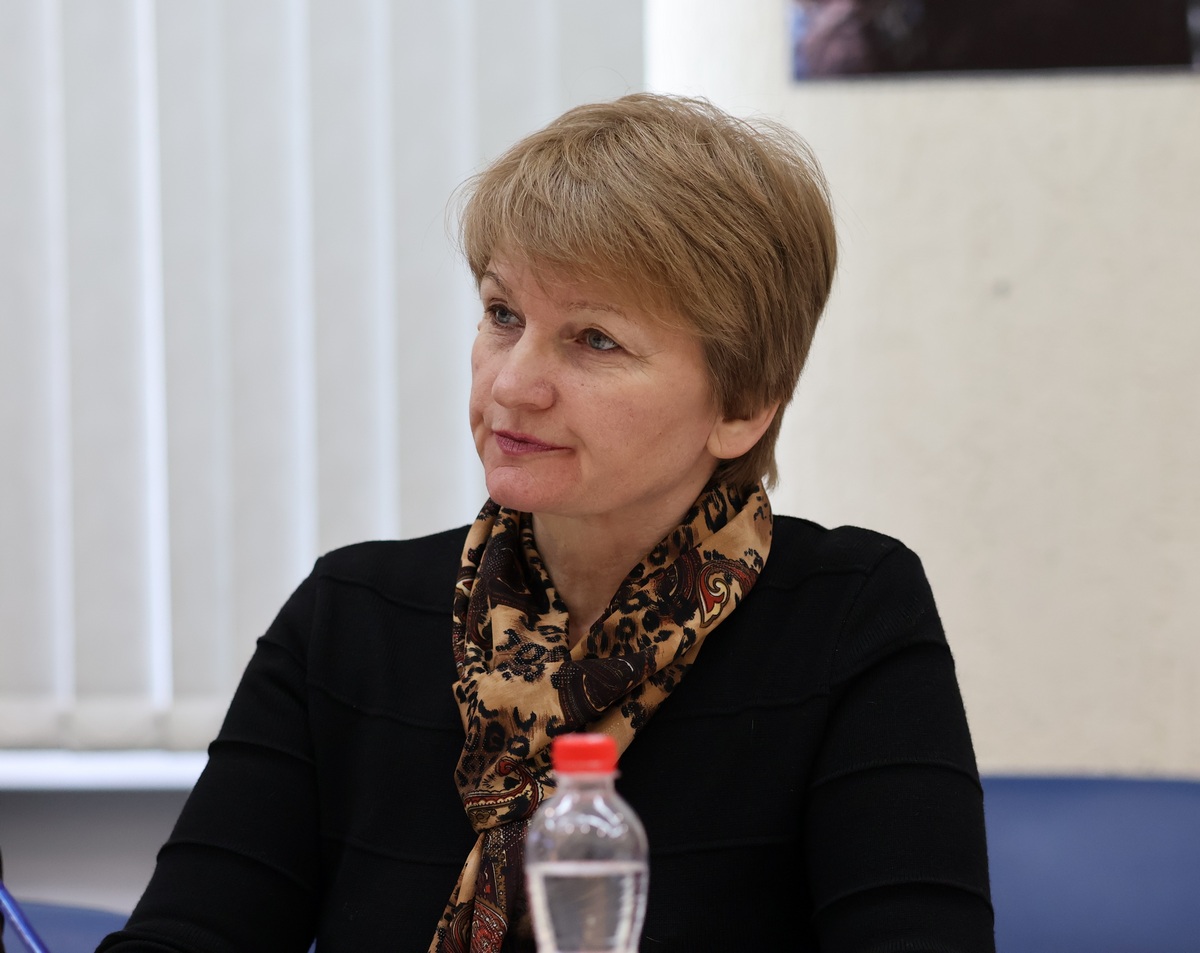
Olha Banit, the chief researcher of the Department of Andragogy of Ivan Ziaziun Institute of Pedagogical Education and Adult Education of the NAESU / Doctor of Pedagogical Sciences and senior researcher, characterized the peculiarities of youth media literacy development in the conditions of war. The quintessence of the speech was that modern Ukrainian youth, despite mostly rejecting traditional mass media – television, radio broadcasting, and the press – positions themselves as “not lost, but pumped up.”
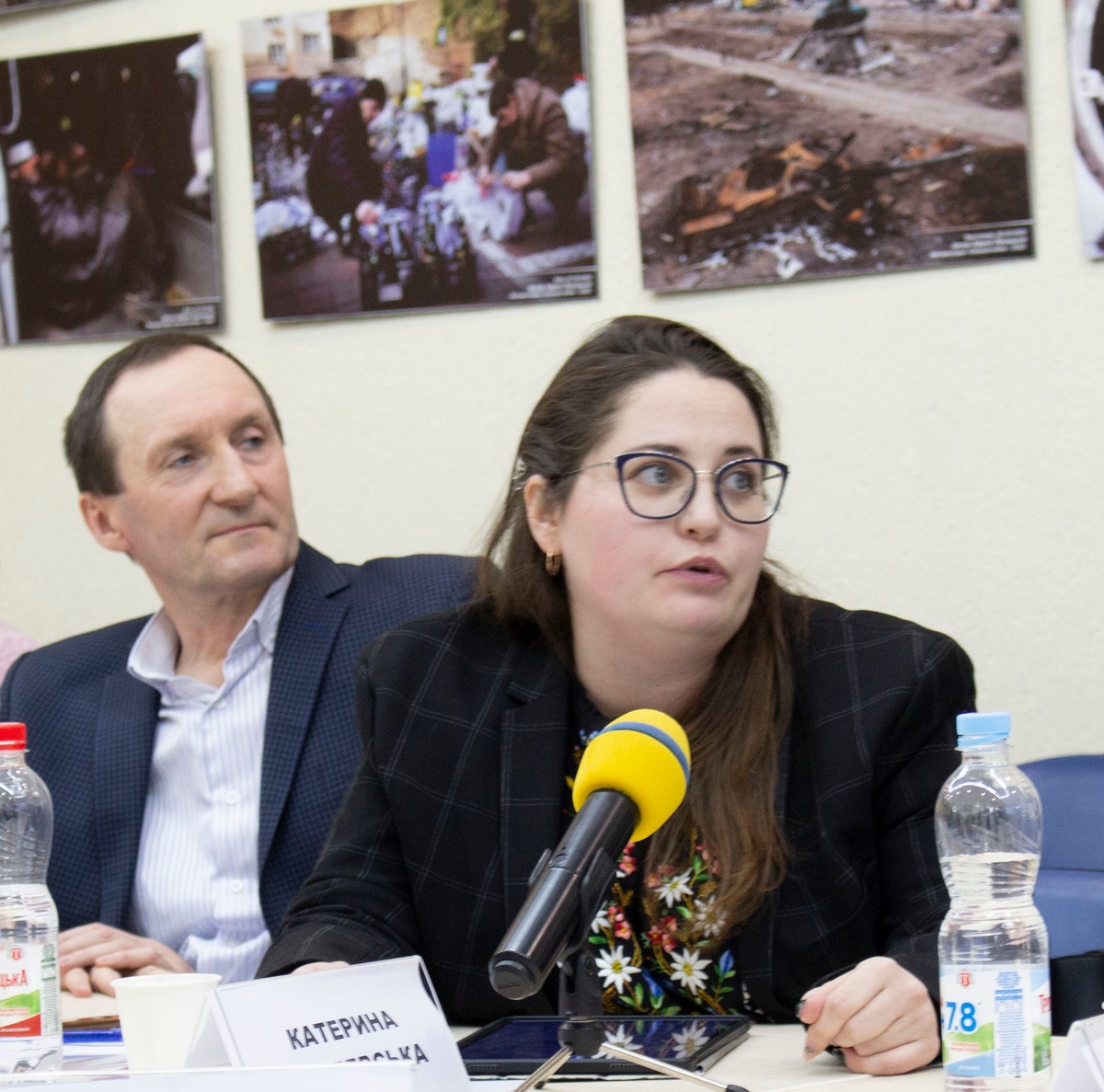
At the same time, senior researcher of the Department of Foreign Systems of Pedagogical Education and Adult Education of Ivan Ziaziun Institute of Pedagogical Education and Adult Education of the NAESU and Candidate of Pedagogical Sciences, Kateryna Hodlevska, drew the attention of Roundtable participants to the need to develop special media literacy programs specifically for pedagogical workers in wartime conditions.
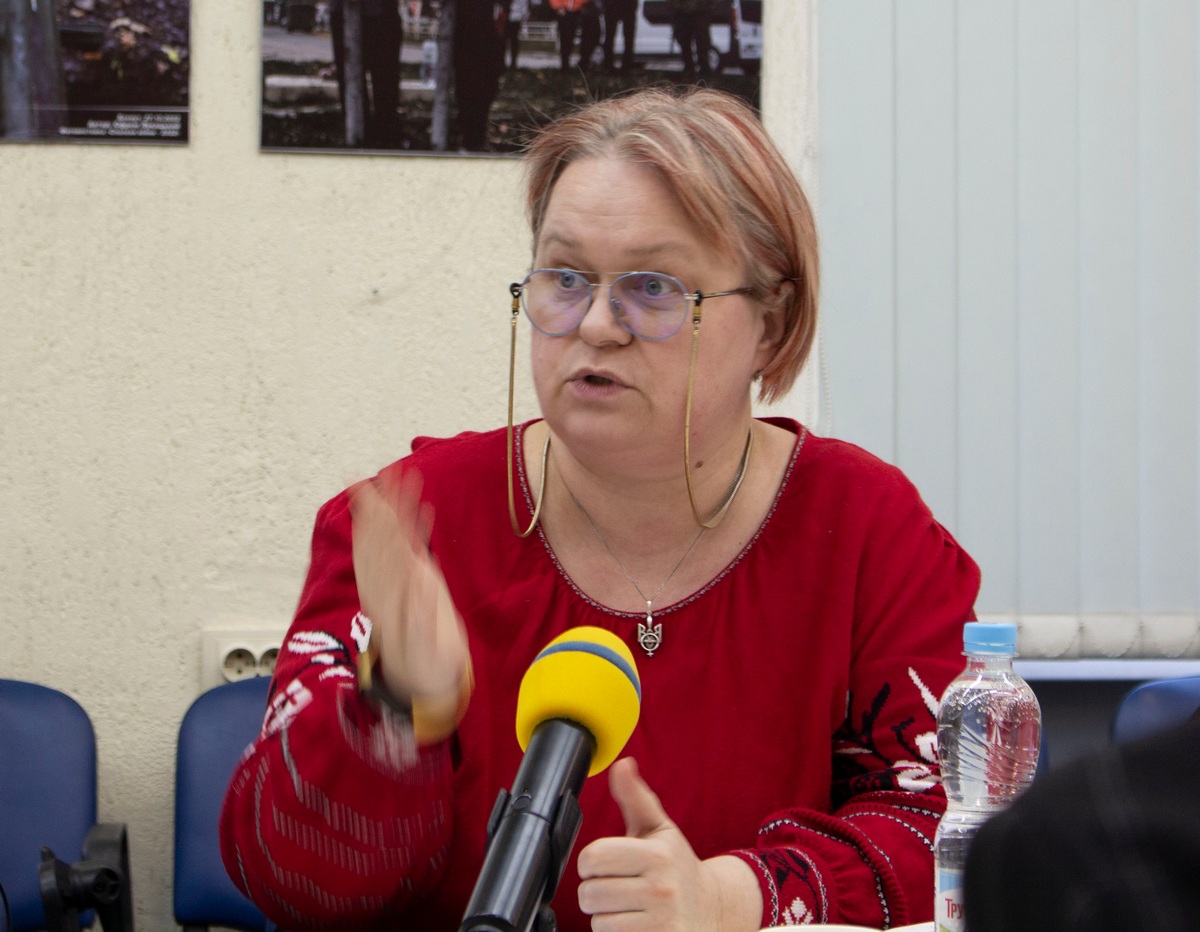
The deputy head of a department of the Ukrainian Institute for Advanced Training of Television, Radio Broadcasting and Press Workers and the national expert on gender issues, Mariya Dmitriieva, noted that media literacy, media hygiene, and media education are practically inaccessible to the rural population of older age, and especially women, due to being busy with household chores, and due to the lack of gadgets, the inability to use them. She proposed to correct the situation in media education with the involvement of libraries of territorial communities.
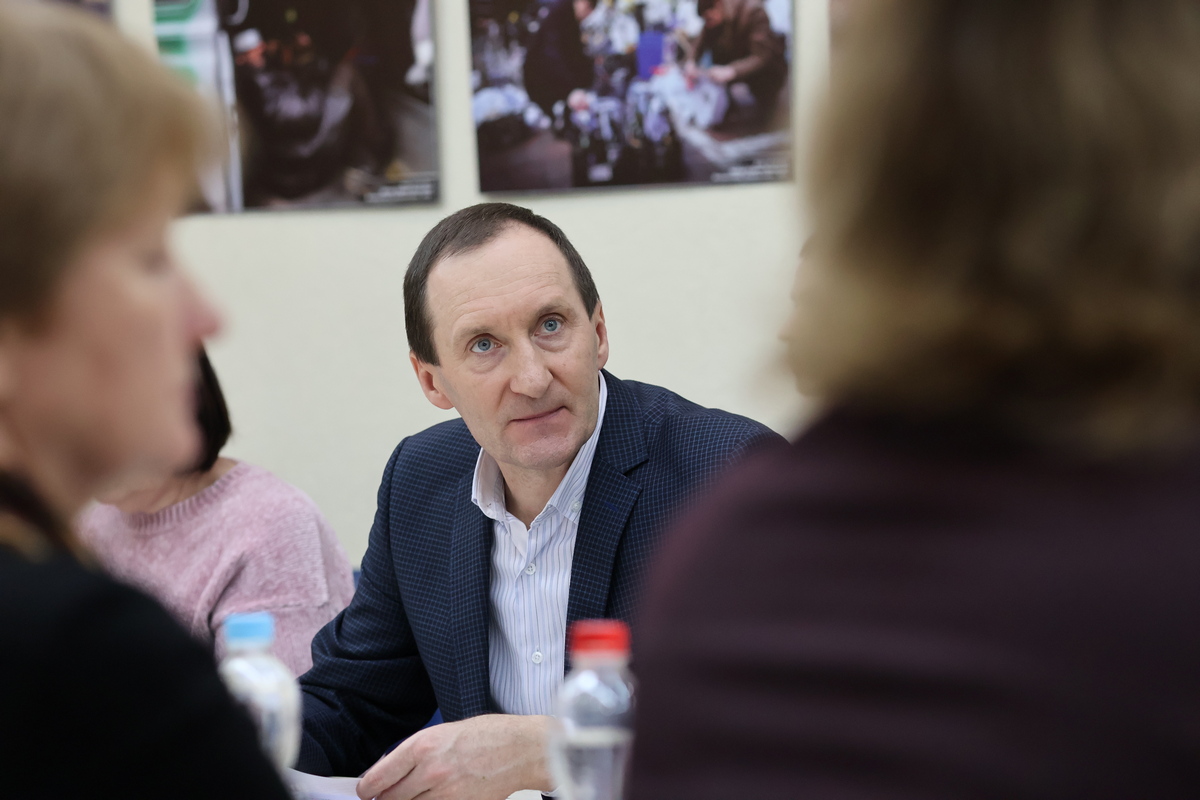
The development of media literacy of students in higher military educational institutions in Ukraine was discussed in the speech of the leading researcher of the Department of Andragogy of Ivan Ziaziun Institute of Pedagogical Education and Adult Education of the NAESU / candidate of pedagogical sciences and associate professor, Ihor Radomskyi.
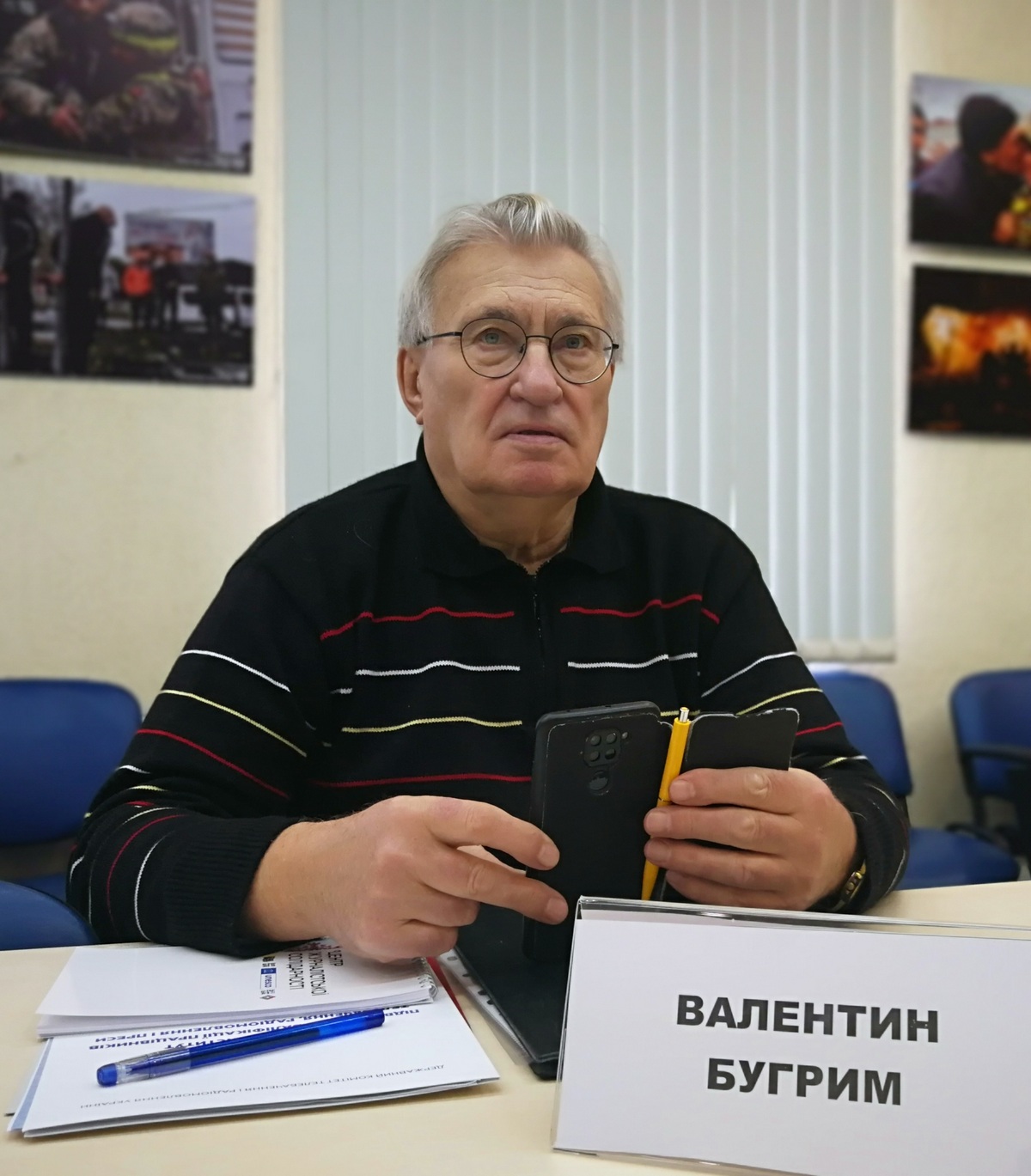
Valentyn Buhrym, a teacher of the first category of the branch of the Ukrainian Institute for Advanced Training of Television, Radio Broadcasting and Press Workers, spoke about new information phenomena such as newsscrolling and doomscrolling and their possible psychological consequences. He offered to promote the scientifically based position that learning new things and learning prolong life, and also emphasized the importance of taking these proposals into account in the bill of Ukraine On Adult Education.
Academician-secretary of the Department of Professional Education and adult education of the National Academy of Pedagogical Sciences of Ukraine / doctor of pedagogical sciences / professor / active member (academician) of the NAESU / honored worker of science and technology of Ukraine, Nellia Nychkalo, focused in her speech on the problems of media education as an important prospective direction of pedagogical research.
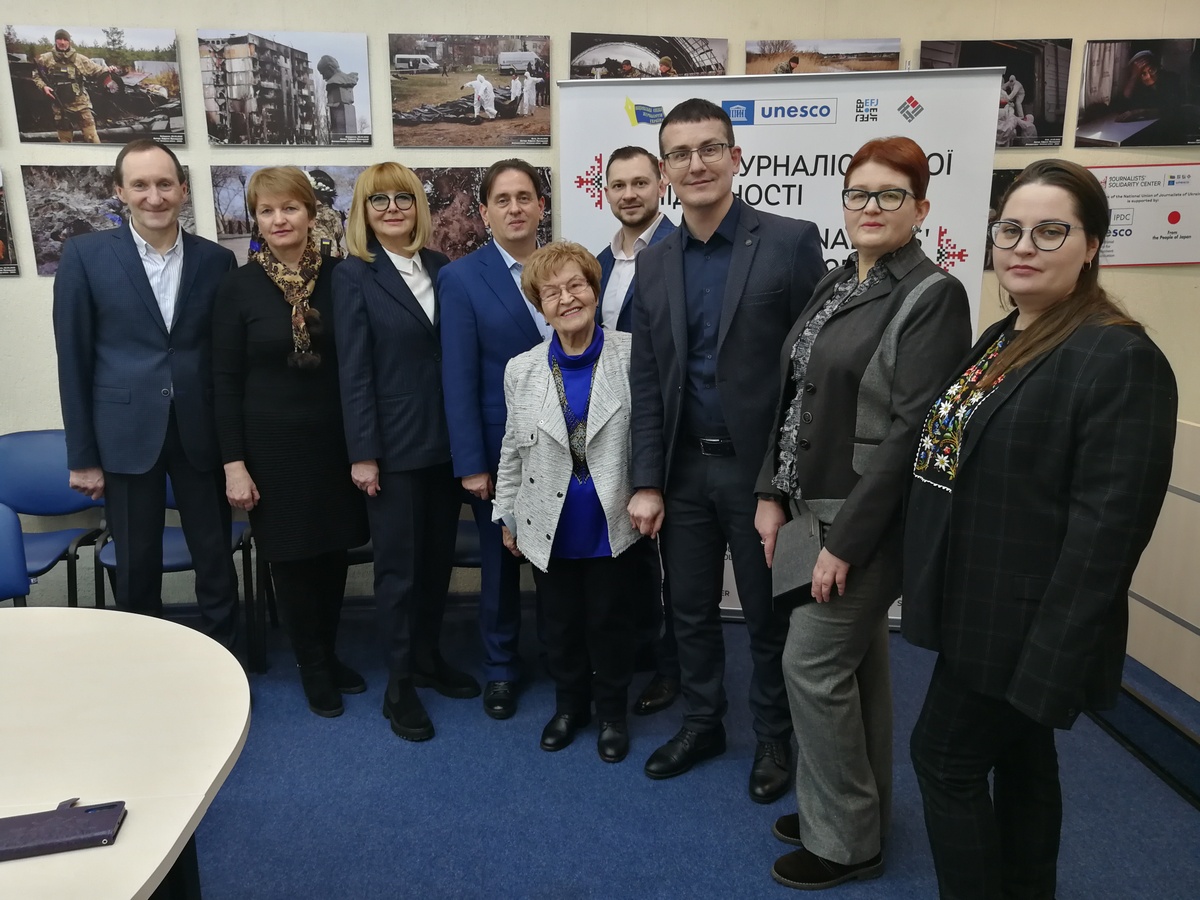
Based on the results of the Roundtable, appropriate recommendations were prepared.

 THE NATIONAL UNION OF
JOURNALISTS OF UKRAINE
THE NATIONAL UNION OF
JOURNALISTS OF UKRAINE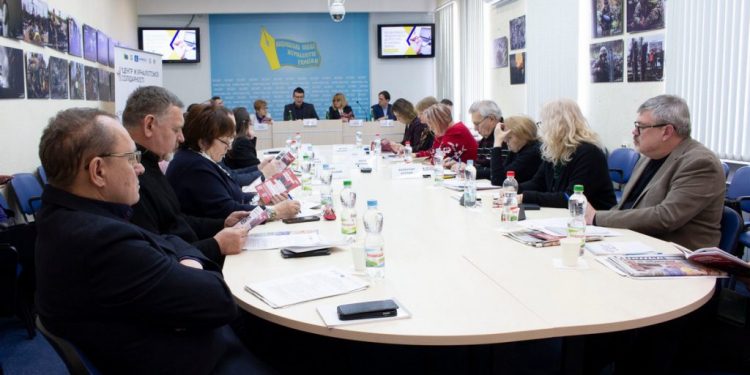
















Discussion about this post